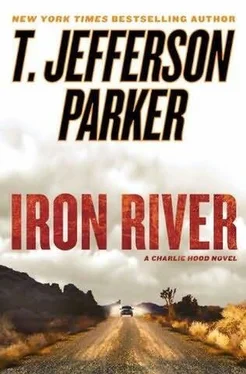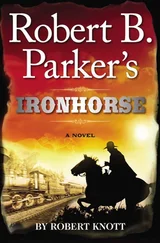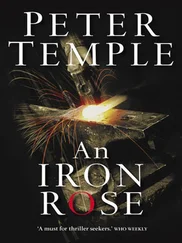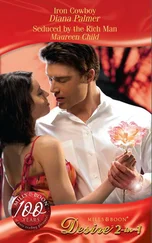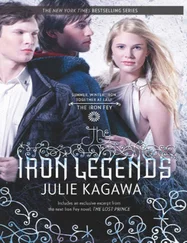T. Parker - Iron River
Здесь есть возможность читать онлайн «T. Parker - Iron River» весь текст электронной книги совершенно бесплатно (целиком полную версию без сокращений). В некоторых случаях можно слушать аудио, скачать через торрент в формате fb2 и присутствует краткое содержание. Жанр: Триллер, на английском языке. Описание произведения, (предисловие) а так же отзывы посетителей доступны на портале библиотеки ЛибКат.
- Название:Iron River
- Автор:
- Жанр:
- Год:неизвестен
- ISBN:нет данных
- Рейтинг книги:3 / 5. Голосов: 1
-
Избранное:Добавить в избранное
- Отзывы:
-
Ваша оценка:
- 60
- 1
- 2
- 3
- 4
- 5
Iron River: краткое содержание, описание и аннотация
Предлагаем к чтению аннотацию, описание, краткое содержание или предисловие (зависит от того, что написал сам автор книги «Iron River»). Если вы не нашли необходимую информацию о книге — напишите в комментариях, мы постараемся отыскать её.
Iron River — читать онлайн бесплатно полную книгу (весь текст) целиком
Ниже представлен текст книги, разбитый по страницам. Система сохранения места последней прочитанной страницы, позволяет с удобством читать онлайн бесплатно книгу «Iron River», без необходимости каждый раз заново искать на чём Вы остановились. Поставьте закладку, и сможете в любой момент перейти на страницу, на которой закончили чтение.
Интервал:
Закладка:
Hood balanced Jimmy upright, then knelt on hands and knees on the sharp ground, and Holdstock lay over his back with a huff. Hood stood and got Jimmy’s legs under each arm and started down the path much faster now, but the man’s weight was cumbersome and substantial and his big arms were firm around Hood’s neck. Hood’s legs and back were strong and he took long strides down the path and when the path vanished, he accelerated between the clumps of creosote and the rocks and the infernal cholla, and again judged his distance from the vehicle on the U.S. side against the three-vehicle war party now streaming from the south toward him. He could see the faint contrails of dust in their wakes and he guessed from their speed and violent rocking that they were military all-terrain vehicles of some kind and that they needed no trail to traverse the desert floor.
He broke into a trot. The rise and fall of Holdstock’s weight was prodigious, but Hood found a breathing rhythm as he watched the ground in front of him, then looked up to fix his course toward the wall. Suddenly the headlights of the stateside vehicle came on. Then another set of headlights from beside it, but these were much closer together, a quad all-terrain vehicle, thought Hood, maybe even a sand buggy. Both sets started toward him. He was sucking deep for wind now and trying to control the exhale, imposing his will. Holdstock’s forearms were hard around his neck because of his useless fingers. “ Jimmy, not so tight. On my neck. Easy.” From his right advanced the three vehicles from Mexico. He heard footsteps behind him but he couldn’t turn without stopping and he couldn’t stop. Duarte huffed into his view on one side, short-legged, stomach swaying, an M16 in his hands. On Hood’s other side emerged both officers and they also had their assault guns, and these younger men were light in the boots and they moved ahead of Hood a few paces and remained abreast, and the five of them crunched on toward the wall. He could hear the Zetas’ vehicles behind him. Ahead of him the two American vessels broke into the lighted security area, a Hummer and a quad runner, trundling back into darkness and coming across the rough desert straight for him. Hood’s legs were burning and he could feel the imminent collapse of them and he slowed so as not to fall, and both the young officers and Duarte closed ranks around him. He heard the clatter of small-arms fire and he saw the muzzle flash from all of the vehicles except the quad, which came buzzing at them like a mad badger. Duarte and the officers fell back and fired from the darkness. Hood trudged onward. He labored up a rise, lungs heaving and legs wavering and it felt like a miracle just to clear it but he did, gasping for air as the quad whined at him through the darkness, and Sean Ozburn laid it into a slide that brought its rear end around and to a stop. Hood dumped Jimmy onto the cargo carrier on the back and climbed on top of him. Ozburn drew an M16 from the handlebar scabbard and handed it back to Hood. Then Ozburn turned off the lights and gunned the quad, steering back toward the wall and the light.
The four-cycle engine was game but overburdened. Ozburn’s memory of the terrain was good, and in the darkness he was able to keep the quad on its own track most of the time. Hood looked a quarter mile ahead to the pool of security light and the end of the wall. He saw the other American vehicle now, an ATFE Humvee crawling toward them through a sandy plain. The Mexican vehicles closed fast but they were still half a mile out. Hood held to the roll bar with one hand and lowered the assault gun at the oncoming enemy, but in his logic, gunfire wasn’t worth betraying their position in the darkness. Ozburn found a hard-packed gulley and the quad groaned along. Hood watched the Humvee, a hundred yards to their left and a hundred yards behind them, make a wide U-turn and pull up slow so Duarte and his men could climb in. The driver kept the rpms high and the speed even, and the heavy machine began across the sand again, back toward the wall.
Ozburn steered them onto American soil. He veered around the floodlit construction area, then brought the smoking ATV to a stop on a rise a few hundred yards from the unwalled border. The engine smoked, and smelled of overheated metal. Hood saw the Humvee lumbering toward them, rhinoceros-like and unfazed. He watched as the three Zeta vehicles stopped forward progress a quarter mile away and began circling like meat bees, their dust-filled headlight beams crisscrossing the night, then finally turning and speeding off into the darkness. He realized he’d never even seen what kind of vehicles they were.
The Humvee rolled to a stop, and Janet Bly got out of the driver’s side and headed straight for Jimmy. Soriana exited the front, then the three Chihuahua state policemen, then Mars.
Holdstock stood in the moonlight beside the smoking quad with his bandaged hands at his sides while the Blowdown team welcomed him back and lightly clapped his shoulders and messed his hair and told him how good it was to see him. Bly hugged him, crying, and Ozburn hugged him, swearing they still had plenty of beer to drink and Zetas to kill. Then they stepped away just a little to give Jimmy some breathing room, to hear his piece, to reestablish his place within their pack, and Jimmy looked at each of them in turn before turning his tearful gaze to the desert floor and saying nothing.
Ozburn introduced himself and the others to Duarte and his officers. “We’ll give you a ride back to your truck if the Zetas don’t blow it up,” he said.
Before ten minutes had gone by, an orange ball of flame puffed to life a mile south, roiling and growing and fighting to stay upright against the westerly breeze.
34
Two evenings later, Hood watched Jimmy’s taped statement on World News Tonight . Jimmy was made up, Hood saw, and his hair was freshly cut and styled. The set was designed to look like a home, but Hood knew that the segment had been taped at the ATFE field division HQ up in Glendale.
Jimmy sat in an armchair, the room bathed in warm lamplight, and there was an end table beside him with a Bible and a vase of yellow roses on it. Jimmy’s eyes were glassy, but he had a small smile on his lips, just an upturn, just a hint. The bulbous bandages on his hands were gone, replaced by streamlined wraps of flesh-colored dressings.
“I’m James Holdstock of ATF and I’m back home in the United States now,” he said. His voice was soft. “I want to thank my friends for getting me back home, and the Mexican government for helping all of us. I wouldn’t be here without them. I know that my abduction has become a controversy, but now it’s over. I’m safe and healthy and I’ll return to work soon. I’m proud to be an American and an agent of the ATF and I’m proud to call Mexico my friend.”
Hood took his beer outside and sat on the flagstone patio. Bly had told him that it had taken nine tries for Jimmy to get the speech right. In spite of the teleprompter, he kept losing focus, slurring words, tearing up. She also said that Jimmy was living in an ATFE safe house now, out of state and heavily guarded. His family had moved in with relatives in St. Paul.
Through the screen door, Hood could hear the anchor interviewing the expert.
First off, was this a matter of derring-do south of the border, or was Mr. Holdstock’s release somehow negotiated?
There is no negotiation with narcoterrorists. I can’t go into details, but yes-cooperative derring-do involving two countries.
This is far from usual, or is it?
It is, Charles, and I think it’s the face of things to come. If we want to win this war against the drug cartels, we must have more cooperation. Much more. And by we I mean the United States and Mexico.
Читать дальшеИнтервал:
Закладка:
Похожие книги на «Iron River»
Представляем Вашему вниманию похожие книги на «Iron River» списком для выбора. Мы отобрали схожую по названию и смыслу литературу в надежде предоставить читателям больше вариантов отыскать новые, интересные, ещё непрочитанные произведения.
Обсуждение, отзывы о книге «Iron River» и просто собственные мнения читателей. Оставьте ваши комментарии, напишите, что Вы думаете о произведении, его смысле или главных героях. Укажите что конкретно понравилось, а что нет, и почему Вы так считаете.
